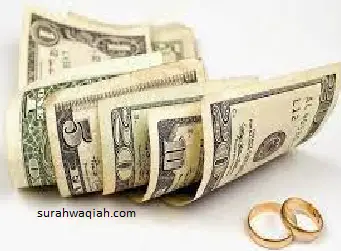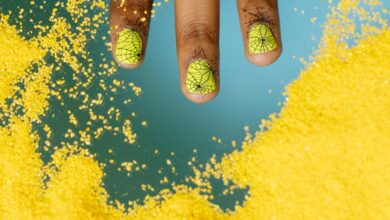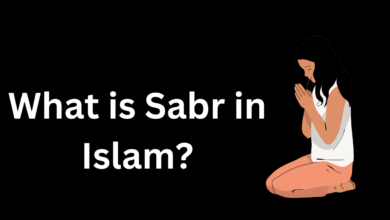

Introduction of Mahr
In Islamic marriages, Mahr holds a significant place as a sacred gift offered by the groom to the bride. It is an integral aspect of Muslim matrimonial traditions and has deep cultural, social, and religious implications. Mahr, also known as dower or bridal gift, is not a mere financial transaction but a symbol of love, respect, and commitment in the context of marriage. This article delves into the concept of Mahr, its history, significance, and how it reflects the core values of Islamic marriage.
Historical Perspective:
The concept of Mahr can be traced back to the time of Prophet Muhammad (peace be upon him) and was further codified in Islamic jurisprudence. In pre-Islamic Arabia, women had no legal rights and were often treated as commodities during marriages. Islam revolutionized this system and introduced Mahr as a means to secure the rights and dignity of women in marriage.
Meaning and Purpose:
Mahr is essentially a mandatory gift from the groom to the bride, stipulated in the marriage contract. It represents the groom’s commitment to support and protect his wife financially, emotionally, and spiritually throughout their married life. While it is primarily a financial obligation, Mahr is not a dowry (a practice where the bride’s family provides money or gifts to the groom or his family). Instead, it is the exclusive right of the bride, and she has complete control over how to use it.
Types of Mahr:
Mahr can take various forms, including monetary gifts, jewelry, property, or any valuable item specified in the marriage contract. Its value is typically agreed upon by both parties before the marriage, and it may vary depending on factors such as the groom’s financial capacity and societal norms. In some cases, the bride may even choose to forgive or reduce the Mahr as an act of kindness or to facilitate the marriage.
Significance of Mahr:
- Protection of Women’s Rights: Mahr plays a crucial role in safeguarding the financial independence and security of the bride. It ensures that she has assets that are exclusively hers, even in the event of divorce or the husband’s demise.
- Respect and Honor: Offering Mahr reflects the groom’s respect and appreciation for the bride. It demonstrates his commitment to caring for her and creating a stable foundation for their married life.
- Elevating the Value of Marriage: By emphasizing Mahr, Islam elevates the importance of marriage, emphasizing the significance of the commitment made by both partners. It underscores the sanctity and seriousness of the marital bond.
- Symbol of Love: Mahr is not just a financial obligation but an embodiment of love and care. It reflects the intention of the groom to care for and cherish his bride throughout their marriage.
- Balancing Social Inequality: In societies where women might not have access to financial resources or equal opportunities, Mahr provides a degree of balance by giving them a tangible asset of their own.
Modern Interpretations and Practices:
In modern times, the practice of Mahr has evolved to suit different cultural and legal systems. While some Muslim couples adhere strictly to traditional interpretations, others may incorporate a more contemporary approach. Some may choose to have a symbolic token of Mahr along with a separate financial arrangement to support the bride’s needs.
Misconceptions and Clarifications:
Mahr has been a subject of misunderstanding in some societies, with some misconceptions regarding its nature. It is essential to clarify that Mahr is not a bride price or a form of purchase; it is an honorable gift presented out of love and commitment. It is also not a tool to suppress women or a means for their exploitation; rather, it aims to protect their rights and dignity.
Conclusion:
In conclusion, Mahr is a sacred and significant element of Islamic marriages, representing the love, respect, and commitment between the couple. It serves as a symbol of protection for women’s rights and financial security, elevating the value of marriage and reinforcing the bond between husband and wife. By understanding the true essence of Mahr, we can appreciate its profound importance in the Islamic tradition and its role in fostering healthy and balanced relationships within the context of marriage.
What is Mahr?
Mahr, also known as dower or bridal gift, is a mandatory gift given by the groom to the bride as part of an Islamic marriage contract. It is a symbol of love, respect, and commitment and serves to protect the financial rights and security of the bride.
Is Mahr a form of dowry?
No, Mahr is not a dowry. Unlike dowry, where the bride’s family provides money or gifts to the groom’s family, Mahr is the exclusive right of the bride. It is a gift given by the groom to the bride to honor and support her throughout their married life.
Why is Mahr significant in Islamic marriages?
Mahr is significant as it represents the groom’s commitment to care for and protect his wife. It elevates the value of marriage and serves to safeguard the financial independence and dignity of the bride. It also reflects the sanctity and seriousness of the marital bond.
Can the bride decide the value of Mahr?
Yes, the value of Mahr is typically agreed upon by both the bride and the groom before the marriage. The bride has the right to decide the amount or form of the gift, and it is recorded in the marriage contract.
Is Mahr only a financial obligation?
While Mahr is primarily a financial obligation, it can take various forms, including monetary gifts, jewelry, property, or any valuable item. Its essence lies not just in the monetary value but in the intention and commitment behind the gift.
What happens to Mahr in case of divorce?
In the unfortunate event of divorce, the bride is entitled to keep the Mahr as her exclusive property. It serves as a financial support for her during this difficult period and remains her rightful possession.
Can the bride choose to forgive or reduce the Mahr?
Yes, the bride has the right to forgive or reduce the Mahr as an act of kindness or to facilitate the marriage. This gesture is considered virtuous and showcases the bride’s generosity and understanding.
Is Mahr a part of all Islamic marriages?
Yes, Mahr is an essential part of Islamic marriages and is practiced by Muslims worldwide. It is considered a core element of the marriage contract, reinforcing the responsibilities and rights of both the bride and the groom.
Does Mahr differ across cultures and regions?
Yes, the practice of Mahr may vary across different cultures and regions within the Muslim world. The value, form, and customs surrounding Mahr might differ, but the underlying principle of offering a gift to the bride remains consistent.
Does Mahr have religious significance?
Yes, Mahr has religious significance in Islam. The concept of Mahr was introduced by the Prophet Muhammad (peace be upon him) to protect women’s rights and dignity in marriage. It is rooted in Islamic teachings and remains an integral part of Muslim matrimonial traditions.





